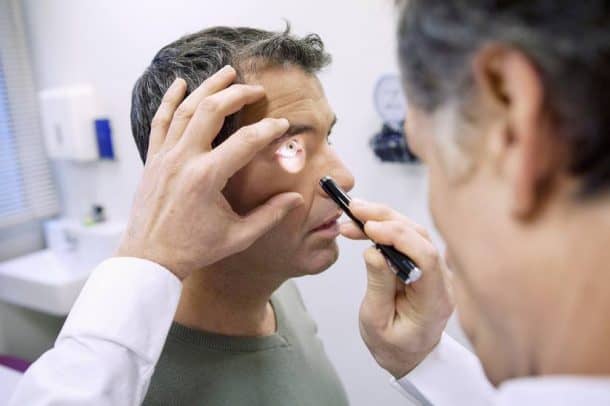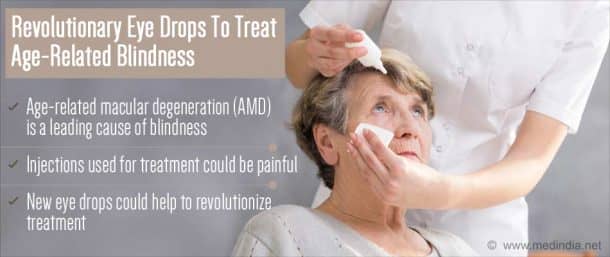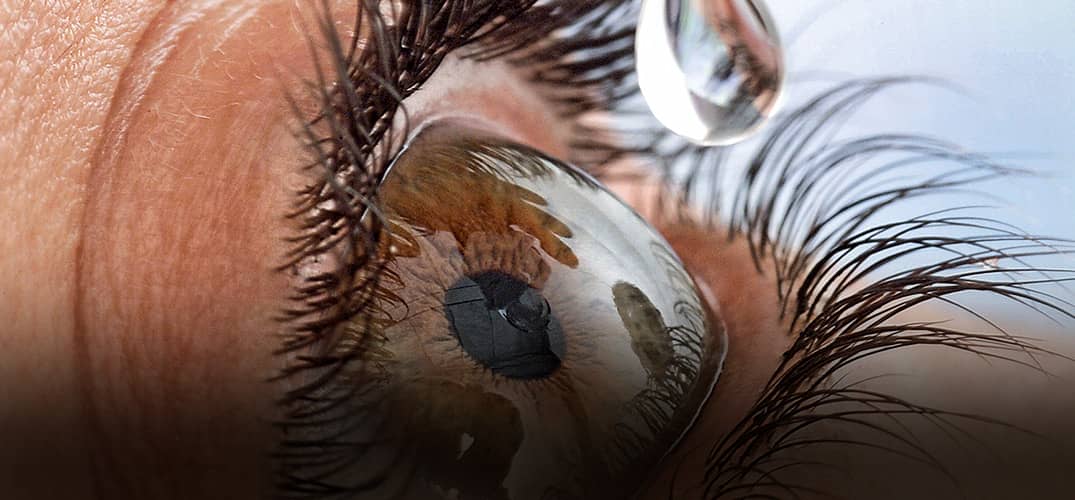Eye-drops that can repair the corneas and can improve the short and long sightedness have been developed by a team of Ophthalmologists at Shaare Zedek Medical Center and Bar-Ilan University’s Institute of Nanotechnology and Advanced Materials. The solution of nanoparticles called the ‘nanodrops’ was successfully tested on a pig’s cornea. Clinical trials are expected to be carried out later this year. If the clinical trials on humans are successful, it is expected that the need of eyeglasses will be eliminated.
The leader of the research team, Dr. David Smadja, said that the eye-drops can bring a revolution in ophthalmological and optometry treatment of patients who are suffering from myopia, hyperopia and other refractory conditions. The revolutionary breakthrough in the field was revealed by Dr. Smadja at Shaare Zedek’s second biennial research day, which was held at Steinberg Auditorium in Jerusalem. He said that the nano drops can also be used to replace multifocal lenses and allow people to see objects from different distances. Smadja said, “This is a new concept for correcting refractory problems.” However, he didn’t mention the times of applications which will replace the need for the glasses completely.

The experiment lead by Dr. Smadja and his colleagues involved analyzing refractive errors of the pig eyes before and after the installation of nano drops which are filled with the various concentrations of synthetic nanoparticles. The results showed a significant improvement in error correction for both myopia (near-sightedness) and hyperopia (far-sightedness) refractive error. If the results are successful in humans too, the prospective patients will require a smartphone app to scan the eyes and measure their refraction.
The research from Smadja is one the chosen works by a team of judges from 160 pieces of research which was carried out by Shaare Zedek physicians and nurses over the last two years. The hospital staff publishes around 330 articles in different medical and science journals through the Shaare Zedek Mada’it each year. This is not the first time that the use of nanotechnology in eye-drops were investigated. The increasing research in this field has opened new doors in the field of medicine and surgery. A lot of research has already been done to develop nanotechnology-based systems to treat the ocular diseases.

Researchers at UCL Institute of Ophthalmology, London, also demonstrated the possibility of creating formulations of tiny nanoparticles loaded with the AMD (age-related macular degeneration) drug, Avastin. The eye-drops can be safely and effectively used in patients as compared to injecting drugs into the eyes, which is an uncomfortable experience. In another experiment, performed by the researchers from National Taiwan Ocean University, bacterial eye infections were treated by the use of carbon quantum dots covered with spermidine. The researchers said that the new quantum dots have the potential to be used in eye-drops and kill the antibiotic-resistant bacteria which causes keratitis.
The future of eye treatments is definitely interesting!



What a great idea